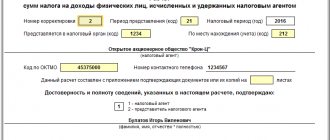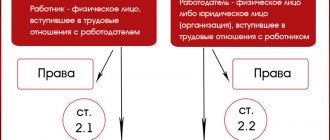Territorial jurisdiction of labor disputes
According to the existing general provision, civil claims are sent to the place of residence of the citizen or enterprise-defendant.
Article 28 of the Civil Procedure Code directly establishes that a claim is filed with the court in the locality where the defendant organization is located. At the same time, paragraph 6 of Article 29 of the same Code allows for labor cases to present claim materials at the place of residence of the claimant. In the same article (clause 2), plaintiffs in certain cases are given the opportunity to bring claims against the defendant legal entities in the locality where their branch or representative office is located. Labor disputes fall entirely within this disposition.
Based on the relationship and totality of the mentioned norms of law, the plaintiff, at his own discretion, has the right to send documents to the court:
- in the city or district where the enterprise is registered;
- in the area or city where he himself lives;
- in the city or district where the employer’s branch or representative office is located (if the plaintiff worked there).
This last point requires some clarification. Many citizens physically work in branches of organizations whose headquarters may be located several thousand kilometers from the enterprise itself.
As a general rule, representative offices and branches of enterprises themselves cannot be defendants in court, because they are not legal entities.
So the defendant in a labor dispute will not be a branch of the organization, but the enterprise itself (it doesn’t matter where it is registered and actually located). However, a claim can be filed in the exact place where the branch is located.
The law allows for a change in the territorial jurisdiction of a labor dispute by mutual agreement of the parties, but only until the judge has formally accepted the case for his proceedings. This rule is called contractual jurisdiction and is used quite rarely, as a rule, in disputes that are not labor disputes.
Sample claim
B (name of court)
Plaintiff: (full name, address)
Defendant: (full full name of the entrepreneur or name of the enterprise, address)
Cost of claim: (entire amount of claims)
STATEMENT OF CLAIM
on the collection of wages
and monetary compensation for delay in payment
I work at a company with “___” in my position. For the period from “___” to “___” I was not paid wages. In total, for the specified period, the defendant’s debt for basic payments amounted to ___ rubles. The debt calculation is attached. Thus, the employer does not fulfill one of his main duties provided for by law and the terms of the employment contract.
In accordance with Article 236 of the Labor Code of the Russian Federation, if the employer violates the established deadline for payment of wages and other payments due to the employee, the employer is obliged to pay them with interest (monetary compensation) in the amount of not less than one three hundredth of the refinancing rate of the Central Bank of the Russian Federation in force at that time from unpaid amounts on time for each day of delay, starting from the next day after the established payment deadline until the day of actual settlement, inclusive.
As of the day I filed a statement of claim in court, the defendant is obliged to pay monetary compensation in my favor for the delay in payments in the amount of ___ rubles. The calculation is attached.
In accordance with Article 237 of the Labor Code of the Russian Federation, moral damage caused to an employee by unlawful actions or inaction of the employer is compensated to the employee in cash in amounts determined by agreement of the parties to the employment contract. In the event of a dispute, the fact of causing moral damage to the employee and the amount of compensation for it are determined by the court, regardless of the property damage subject to compensation.
The illegal actions of the employer caused me moral harm, which was expressed in (indicate specific experiences, for example: stress, depression, insomnia, etc.). I estimate the moral damage caused to me at ___ rubles.
Based on the above, guided by Art. Art. 236, 237, 391 of the Labor Code of the Russian Federation, Art. Art. 131-132 of the Civil Procedure Code of the Russian Federation,
1. To recover from (name of employer) in my favor ___ rubles, which constitute the defendant’s wage arrears.
2. To recover from (name of employer) in my favor monetary compensation for delay in payments, for each day of delay, starting from the next day after the established payment deadline “___” until the day the court decision is made.
3. To recover ___ rubles from (name of employer) in my favor as compensation for moral damage.
1. A copy of the statement of claim.
2. A copy of the order to hire the plaintiff.
3. Employment contract.
4. Copies of orders (instructions) on the procedure for bonuses, on changes in the conditions of remuneration of the plaintiff during the period of work for this employer (if any).
5. Certificate of tariff rate (salary) and average earnings of the plaintiff.
6. Certificate from the accounting department about the accrual (not accrual) of payments in favor of the plaintiff.
7. Calculation of the defendant’s debt for basic payments.
8. Calculation of monetary compensation on the day of filing a claim in court.
Date of application: “___” Signature of the plaintiff (Ivanov I.I.)
Jurisdiction and jurisdiction of labor disputes
These two concepts are often confused, although their meaning is completely different.
Jurisdiction
Jurisdiction is determined by the body authorized to resolve a particular dispute. Most labor conflicts are resolved in civil court. However, this is not the only authority to which they are subordinate.
If a disagreement arises, an employee or employer has the right to contact the Labor Dispute Commission (LCC). And collective disputes between workers are considered by labor arbitration. This is a temporary body created by the parties to the conflict with the involvement of the state inspection.
We invite you to read: Why interim workers are not recorded in the work book
Appeal to the CCC involves pre-trial settlement of labor disputes. It is interesting that among the bodies dealing with them there is no labor inspectorate. In 2020, several court decisions were made where it was concluded that this department does not consider or resolve individual disputes between an employee and an employer (for example, the appeal ruling of the Magadan Regional Court No. 33-19/2015 of January 27, 2020).
However, consideration of labor disputes in court is possible in other cases not mentioned in this list. The Code of Civil Procedure of the Russian Federation and the Labor Code allow you to go to court, bypassing the CCC, or if the party to the conflict does not agree with the decision of the commission. That is, the labor dispute commission is a possible, but not obligatory (and not final!) authority for regulating disagreements.
Jurisdiction
Jurisdiction allows you to determine in which court labor disputes are heard. It establishes not only the type of court, but also its location.
The Code of Civil Procedure of the Russian Federation does not directly indicate the jurisdiction for labor disputes. Only Article 29 of the Code (clause 6.3) states that employees have the right to file claims for the restoration of their rights at their place of residence (and not at the location of the defendant). And in paragraph 9 of the same article it is noted that when challenging an employment contract, a citizen has the right to file a claim at the place of execution of the contract.
Additional information about which court considers labor disputes can be found in Resolution of the Plenum of the Supreme Court of the Russian Federation No. 2 dated March 17, 2004. The document, in particular, states that determining the legality of an organized strike is entrusted to the Supreme Courts of the constituent entities of the Russian Federation (territories, regions, federal cities, etc.).
An employee who wants to defend his rights should know which court to go to in labor disputes. The bulk of them are considered in district courts (general jurisdiction). However, current judicial practice is on the side of the plaintiff who filed documents in the wrong court.
Thus, the Supreme Court of the Russian Federation issued a Determination (No. 44-KG16-5 dated June 20, 2016), which states that if a citizen made a mistake with jurisdiction, and in connection with this the claim was returned to him, he has the right to restore the statute of limitations (if from - due to the red tape that arose, he was let through). Finding documents in the “wrong” court is a valid reason for skipping it.
To establish the jurisdiction of labor disputes, it is necessary to determine the beginning of the labor dispute. You should also know what kind of labor dispute it is (individual or collective).
Thus, the beginning of an individual dispute is the appeal of one of the parties to the labor relationship to the bodies established by law for the resolution of the dispute (Article 285 of the Labor Code of the Russian Federation). Thus, this type of dispute is represented by an exceptional procedural form.
We invite you to read: Installment plan for execution of a court decision - advice from lawyers and lawyers
A collective dispute is considered to have begun from the day the employer reports evading the fulfillment of workers’ demands and the moment a protocol of disagreements between the parties to the labor relationship is drawn up.
The jurisdiction of cases is intended to determine and delimit the competence of the bodies to consider these disputes. Thus, the Legislator established that for resolving an individual labor dispute, jurisdiction is the same (both for a dispute about interest and for a dispute about law).
The Labor Code of the Russian Federation in Article 391 indicated that alternative jurisdiction is established. For example, an employee or a trade union can appeal to the labor dispute commission (hereinafter referred to as the LCC) or to the court. There is an opportunity to go straight to court.
Can not understand anything?
Try asking your teachers for help
Exclusive jurisdiction implies consideration of the case only in court (clause 2 of Article 391 of the Labor Code of the Russian Federation).
Such cases include the following categories:
- reinstatement at work;
- changing the wording of dismissal;
- restoration of violated employee rights due to unlawful actions of the employer with personal data;
- payment for forced absence;
- payment for unlawful transfer to another position;
- to challenge a refusal to hire;
- compensation for damage caused by the employee to the employer;
- on relations arising from employment contracts of persons who work without the status of an individual entrepreneur;
- according to statements from employees of a religious organization;
- at the request of a person who believes that discrimination has occurred.
Jurisdiction is...
So, let's deal with jurisdiction. To do this, first of all, you need to have a good understanding of the categories of cases. So, for a correct, and most importantly, for making an objective court decision, it is simply necessary that the jurisdiction of labor disputes be respected.
Jurisdiction in its essence affects only one authority of the body , so that the dispute itself is accepted for consideration. Let's look at the categories of disputes (about the procedure for resolving labor disputes)
The first category is individual disputes. As for jurisdiction, such disputes are considered in accordance with the general procedure. The review is carried out by a labor dispute commission.
Also, in the second category of cases, consideration can be carried out by the court and only by the court. These are the rules of jurisdiction.
Also, consideration in the third case is carried out in a special manner. As a rule, this happens for certain categories of workers.
Another category of cases is to consider them in a conciliatory manner.
If the dispute belongs to any of the listed groups, this means that all other bodies are not authorized to do this and can consider the dispute only after it has gone through all the necessary stages of proceedings.
This is the basic rules of jurisdiction.
Jurisdiction of individual labor disputes
In addition to individual disputes between workers and employers, there are cases when a collective labor dispute arises between workers and their enterprise. Such disputes are considered by a special body - labor arbitration, according to rules that differ from civil procedural legislation.
Individual labor disputes cannot be considered in labor arbitration and must be resolved exclusively in courts of general jurisdiction.
In judicial practice, there are often cases when several employees simultaneously present identical claims to the administration of an enterprise.
In this case, under certain circumstances, the judge, with the consent of the plaintiffs, has the right to combine all these materials into one proceeding.
However, from the point of view of labor legislation, such a dispute will still be considered individual (and not collective), since a certain decision must be made in relation to each individual employee. Accordingly, labor arbitration will not have jurisdiction over such a case.
We decide personally or collectively
There are cases when employees file collective complaints for identical violations of the employer. The jurisdiction of individual labor disputes and collective complaints differs. If a person resolves issues with his former (or current) superiors on his own, then such a dispute will be considered personal. In this case, the court for filing a request to restore the rights of the subordinate is determined according to the above rules on a general basis.
If employees have the same requirements for their superiors, the complaint will not be counted as a collective one, since a decision is made for each plaintiff individually. In this case, the proceedings may be consolidated into one case by the judge. But such a situation will be considered according to the rules of general jurisdiction.
Jurisdiction of labor disputes regarding the collection of wages
As a general rule, such claims are filed in the district court - taking into account alternative jurisdiction, when the applicant decides for himself whether to file a claim at the place of his residence or the location of the employer.
We invite you to familiarize yourself with: Settlement of mutual claims under DDU
A citizen can appeal to a magistrate only if he intends to collect a salary debt in writ proceedings (Article 23 of the Code of Civil Procedure of the Russian Federation). This makes sense if the claimant is confident that there will be no objections from the debtor organization. However, if they are, the court order will be canceled.
The claim and its contents
In order for the court to accept and consider your claim, its content and form must comply with all the requirements of the current legislation (Article 131 of the Code of Civil Procedure of the Russian Federation).
1. Name of the court where the plaintiff is applying. To determine which court to file a claim in, the issue of jurisdiction of the existing dispute must first be resolved. It is correct to file a claim at the location of the defendant, in this case – at the location of the employer. There are also exceptions, therefore, to correctly determine jurisdiction, the plaintiff should be guided by the provisions of Chapter 3 of the Code of Civil Procedure of the Russian Federation (Articles 22-26);
2. Full name plaintiff, residential address, telephone number for contact, additionally indicate email address;
3. Name of the defendant (exact name if it is a legal entity), full location address, telephone numbers, email address, indicate the TIN or OGRN of the organization to identify it.
• determine the cost of the claim;
• calculate the amount of state duty;
• pay the state fee (before filing a claim in court) if necessary (in this case you are exempt from payment).
Jurisdiction of labor disputes regarding reinstatement at work
The jurisdiction of labor disputes regarding reinstatement at work is determined in exactly the same way as all other cases arising from relations related to labor activity.
Relevant claims may be filed against the employer:
- at the employee’s place of residence;
- at the location of the headquarters of the defendant organization;
- at the location of the defendant’s branch or representative office, if the plaintiff worked there.
Let us note that applications for a citizen’s reinstatement at work are within the jurisdiction exclusively of district or city courts—world courts have no right to examine such cases.
Organ categories
Some citizens do not quite understand where exactly they need to go with their complaints. Specific bodies deal with specific cases:
- Magistrate's Court. Considers claims of illegal transfer to another job, unsubstantiated refusal to employ an applicant. If an employee with the necessary qualifications was transferred to a position that does not require any special training, this is a pretext for filing a claim.
- Regional court. Considers appeals on claims that were previously dealt with by magistrates. These are cases of reinstatement, incorrect employment records, forced resignation and payment of money. They also deal with cases related to delays, non-payment, incorrect calculation of wages, and also compensation for moral damage. The district court also receives claims from employers seeking compensation for damages caused by workers.
- Supreme, regional and regional courts. They make decisions on cases regarding the legality of strikes. These authorities deal with appeals in cases previously considered by other district courts.
What to do if the defendant’s place of residence is unknown
Territorial jurisdiction is determined by the location of the defendant. If the defendant is an individual, jurisdiction is determined by his place of residence. According to Article 20 of the Civil Code of the Russian Federation, the place of residence is considered to be the place where the citizen permanently or most often lives, where the citizen is registered and lives as an owner, tenant, on other grounds provided by law.
If it is unknown, the court initiates a search for the defendant in case of consideration of cases on:
- protecting the interests of public entities;
- collection of alimony;
- compensation for harm resulting from injury;
- death of the breadwinner.
In all other cases, the search is carried out by law enforcement agencies.







